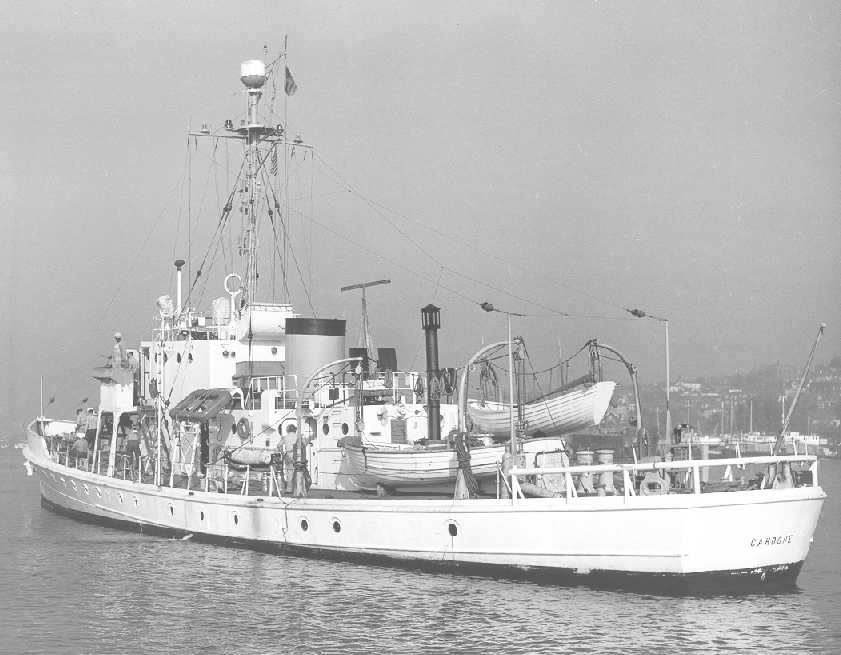Excerpt from my dad's book USCG 28 years
It was a hell of a wall of water.
—Rodger Dewey
After his time on the Escanaba, Dewey served on the USCG Cutter Cahoone, a 125-foot cutter, and spent nineteen months in Alaska. It was aboard the Cahoone that Dewey experienced the worst sea storm of his life.
“Oh, I wish I was dead,” Dewey moaned as the stern of the Cahoone rose into the air and then slammed back into the frigid waters of the Gulf of Alaska. The Cahoone headed west from the Sitka Sound into deeper waters headed for Pelican Bay, about three hundred miles from Anchorage, Alaska. The acting skipper was sick as a dog. The warrant officer barked at the skipper, “Get your ass up on deck to show everyone we’re going to be okay!”
A call came over the radio from the district. “Proceed and seek shelter. This is going to be a bad storm.”
The Cahoone dropped as the waves towered fifty feet above the ship. It was a “hell of a wall” of water. The wall of water then fell, slamming against the side of the ship, tossing it backward then forward. The walls kept coming.
The men sat below deck, strapped down as the ship continued to be battered and tossed by the ocean storm. Most of the sailors were beyond the point of sickness, already having lost their dinners to the trashcans.
This was the first sea storm many of them had ever experienced.
“Oh, I wish I was dead.” The words were coming from deep in his stomach as it rolled with the waves of the storm. Men around him cursed. The air inside the hull was stifling and thick, filled with curses and prayers. His shipmates sat around him, some with their hands folded, looking down at the deck below them. Others prayed out loud, bargaining with God and making promises, begging for their lives to be spared.
The old salts that spent their lives on the ocean sat at a table and drank their coffee. They could have as easily been drinking coffee at the corner table of a diner—their demeanor and conversation never betraying that the ship was being battered to pieces by the storm raging outside.
Outside, the wind tore against the Cahoone. The men heard its moan in between times when the stern would slam down, plunging into the ocean. The metal of the ship creaked and grinded as if she were grunting and straining to hold herself together. At any moment, Dewey expected the rivets to start popping and the welds to let go as the ship twisted in the storm.
Suddenly, the moans of the wind were interrupted by the jarring sound of metal slamming against metal. The men let out a collective cry, knowing that the ship was breaking apart and would sink to the bottom of the ocean. Metal tore away from the deck with a deafening sound of clanging above.
The Charlie Noble, an exhaust stack for the kitchen, tore loose and was flattened against the bulkhead. The anemometer, a device for tracking the speed of the wind, could not keep up with the gusts, broke loose, and flew away into the blackness. The motor launch and the pulling boat gave way and slammed into the deck of the ship. In addition, the bilge pump burned out, which means, there was no way for the water that was coming aboard during the storm to be pumped out. We thought the ship was slowly sinking.
Dewey’s body rolled with the ship, but his stomach could not seem to catch up. His insides sloshed around, and his brain began to feel as if it were sloshing in his skull as well.
There are not a lot of opportunities for a boy from Colorado to experience an Alaskan sea storm, and this wasn’t what Dewey had bargained for when he signed up for the United States Coast Guard.
“Oh, I wish I was dead,” he said again to the deck, thinking he was speaking only to himself.
“Shut the hell up, Dewey,” the warrant officer standing over him snapped. “If you want to die so bad, then open up that hatch and step out onto the deck.” For a moment, the warrant officer’s words brought clarity to his mind.
As he looked up at the officer, all Dewey could muster was “I don’t want to die that bad, sir.”
The next morning, the sea was calm, as if nothing had happened the night before. The men surveyed the damage. The ship was “down in the bow” and covered with ice. The ship was badly damaged and returned to port for repairs.
Besides the storm, the time in Alaska was beautiful. Often, during his time in the Coast Guard, Dewey was ordered to paint the ship. But only in Alaska was he ordered to paint the bridge wing during the fourth watch at midnight—without lights. More than once, Dewey would paint on the deck in the middle of the night while the northern lights swirled above him, providing light for his work.
Dewey was involved in many rescues during his time in Alaska while working closely with the Alaska Department of Fish and Game. Once, they rescued a man who had badly cut his arm. Dewey, three others, and an officer got orders to leave the cutter and take a rowboat to shore. On their way to shore, the officer barked at them, “Who the hell taught you boys how to row? He should have been court-martialed!” The men beached the boat and helped load the injured man into another boat. Dewey received accommodations for the rescue. During this time, they rescued stranded boaters and injured hunters and fishermen.
